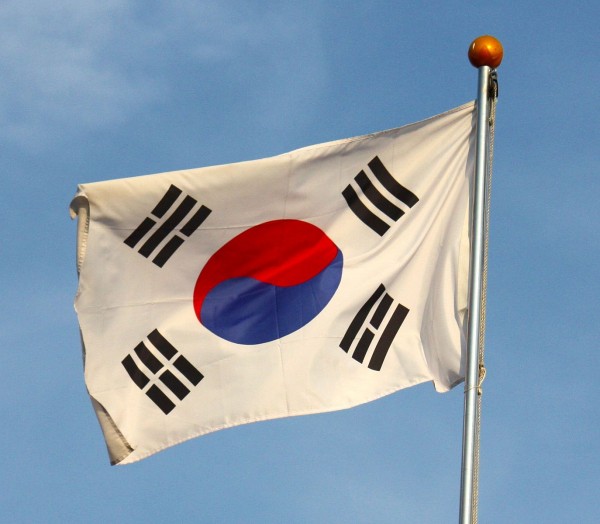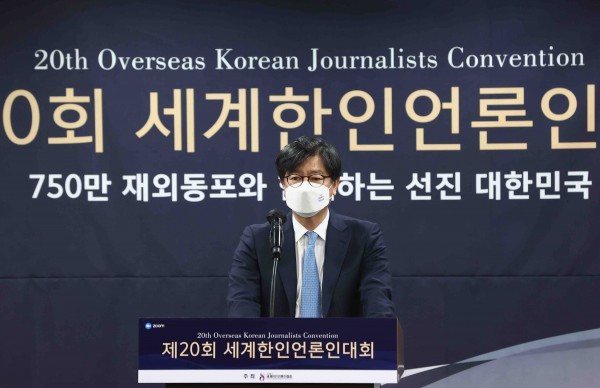His Excellency Kim Dae-Jung
President
Office of the President
Seoul
South Korea
Vienna, 8 August 2001
Your Excellency,
The International Press Institute (IPI), the global network of editors, media executives and leading journalists, is deeply concerned by the severe implications for press freedom and the deep divide within Korean society caused by the issue of press reform. On 16 May 2001, IPI protested against the politically motivated tax probe of 23 Korean media companies, because certain aspects of the investigation were obviously instituted with the intention of intimidating critical media and achieving the much disputed Korean press reform by criminalizing both media owners and media enterprises.
These fears are substantiated when viewed in the light of other measures undertaken by the authorities. Despite the fact that financial and accounting managers of the Chosun Ilbo have already been fully investigated, the Prosecutor’s Office has now summoned the editor-in-chief of the newspaper, Kim Dae-Joong, for questioning on alleged tax evasion. This reinforces the suspicion that the alleged attempts to trace bank accounts of editors and reporters were indeed part of the National Tax Service’s (NTS) activities.
It now appears that the prosecutors intend to arrest a number of media owners/publishers. In a widely observed press release on 1 July 2001, IPI appealed to the Korean judicial and governmental authorities to proceed with caution in the prosecutions for tax evasion. We still believe that imprisonment before being found guilty by a judicial body is tantamount to character assassination, particularly in Asian societies. Arrest warrants are usually issued when there are serious legal considerations at stake such as the danger of destroying or suppressing evidence, the danger of conspiracy, or of fleeing the country.
In the present proceedings, taking into consideration the fact that the NTS inspection lasted 60 days and, in some cases, even 90 days and involved more than half of all available NTS tax investigators, IPI believes that all relevant material forming the basis of any legal charges has been available to the investigative authorities for a considerable period of time. Therefore, the danger of suppressing or destroying relevant evidence in this case is negligible.
This also holds true for the danger of the accused engaging in a conspiracy with others who might be implicated in the tax evasion. Moreover, the good character and reputation of the publishers and managers concerned must also be taken into account when deciding whether arrest warrants should be issued. In the opinion of IPI, other means could be employed to ensure that the accused persons stand trial.
Furthermore, the Ministry of Justice has already taken measures to prevent the accused from fleeing the country. Aside from this, it is difficult to imagine that Koreans would believe the accused are of such “bad” character that they would be prepared to evade possible prosecution for financial irregularities.
It is a fundamental legal principle that a person is innocent until proven guilty. In this specific case, which has been the cause of much controversy both in Korea and among the international community, the prosecution would have to prove the guilt of those charged by placing overwhelming evidence before the court.
Another consideration is the Korean tax system, which is notoriously complex. According to the International Monetary Fund, the tax system is viewed as being unnecessarily so and even the best-intentioned companies have sometimes fallen foul of the law. Furthermore, many tax systems in the industrialised world allow for “different interpretations” of existing laws and have “loopholes”. To make use of such loopholes is certainly not illegal. Nevertheless, if a full-scale tax probe were carried out with a “target” in mind, no company would remain innocent under such an investigative procedure.
IPI wishes to stress the fact that the above statement should not be seen as an interference in Korean judicial or administrative proceedings. However, these cases should be dealt with in court proceedings allowing for the accused to present legal and fiscal experts in support of their defence. Only a cautious approach in this matter can avoid exacerbating the internal conflict and remove the prevailing disenchantment within the international community.
Mr. President, you may have observed that the present situation is detrimental to your political cause of “press reform”. Even a number of the civic groups, such as the Solidarity Network, have stated, “We cannot deny that the essence of the debate on press reform … is being led astray”.
Regarding the proposed revision of the law on periodicals, IPI believes that, in essence, this would mean setting a ceiling on the number of shares which an individual can possess, as well as separating management from ownership and creating a mechanism which ensures editorial independence from owners. These are very sensitive issues, not only touching on the basic principles of press freedom but also on such issues as expropriation from proprietors.
We are deeply distressed that your government has resorted to the politically motivated emotionalisation of this goal. The alliance of civic groups, which ranges from trade unions, journalists associations, university groups, environmental movements and women’s associations to an association of Catholic Priests for the Realisation of Justice, is using aggressive language that fails to appreciate internationally accepted standards.
The following quotes from the many letters sent to IPI or from press releases published in Korea demonstrate the nature of this “war of words”:
“The need to wage a war against the unjust powers of the media which were not elected by the people … clannish, conservative owners/publishers who were parasites living off Japanese imperialism and who enjoyed wealth and power by currying favour with dictatorial regimes.”
- “Arrest the corrupt owners and implement taxation justice.”
- “To re-establish a truthful press, after liquidating the press lords who are corrupt through and through and their conservative newspapers, is the enthusiastic demand of the entire people.”
- “Reporters and editors, stop serving the interests of the corrupt owners/publishers of whom you have become slaves.”
- “Reporters of these papers, come forward and struggle for editorial independence from the owners; if you do not reform yourselves, you know that before long, you will be degraded into an object to be avoided and hated by the Korean people.”
- “The Korean media by and large has lost its sense of social mission and has degenerated into a tyrannical power that controls the conscience of the public and manipulates politics.”
- “The press regards itself a sanctuary, turns a deaf ear to the voice and advice of the people, and wields power as if it were an emperor.”
- “We will encourage our congregation to participate in the press reform movement … and we will expose the evils of the leading media companies run by a few privileged families.”
If such sentiments prevail over common sense, it will be almost impossible to reach a positive solution to the desired “press reform”.
On behalf of IPI, I urge Your Excellency to play a wise role in bringing calm to the present situation. When the time for reasonable discussion arrives, IPI and other international organisations would be willing to participate as mediators in finding proper solutions. This could even be done under the umbrella of a respected international body such as UNESCO.
As I stated in my letter of 16 May, the international press freedom community still hopes to witness some positive signs that your government intends to alter its present methods and work towards ending this controversy, thereby guaranteeing that your reputation as a democratic statesman and respected Nobel Peace laureate is not irreparably tarnished.
With many thanks for your kind attention.
Yours sincerely,
Prof. Johann P. Fritz
Director


